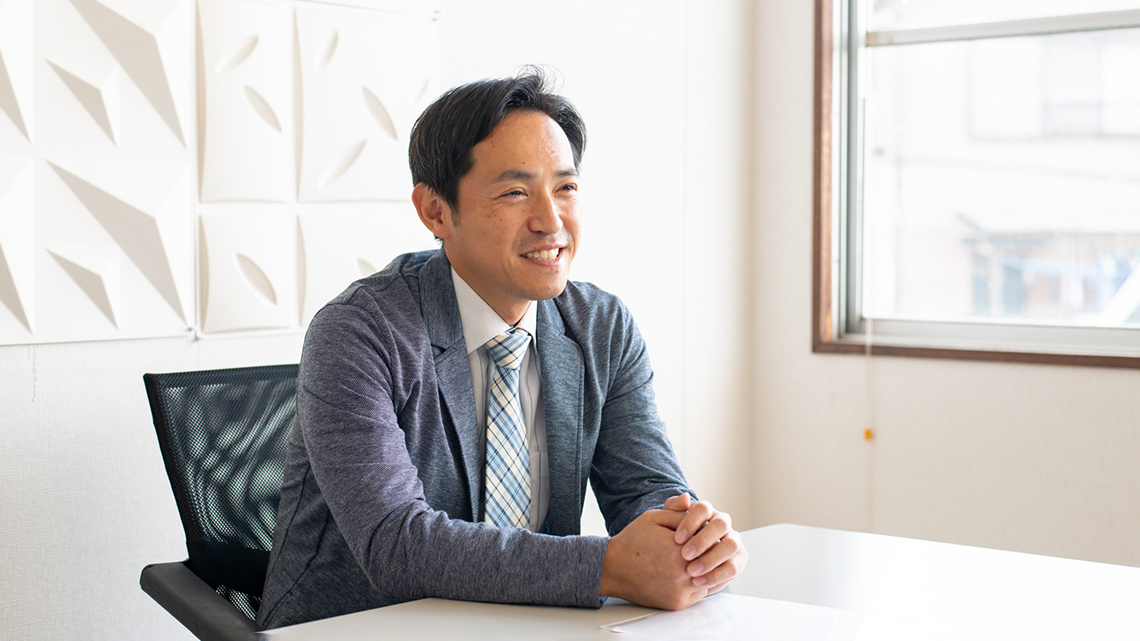
Ishihara Takehiro, President and CEO, Nippon Molding
Great enterprises are born where obstacles demand reinvention and vision refuses to bow to limits. At such turning points, leaders discover that progress is less about speed or scale than about weaving purpose into every decision. What endures is not just innovation itself, but the philosophy that anchors it to society’s greater good.
That belief is embodied in the leadership of Ishihara Takehiro, President and CEO of Nippon Molding, who has shaped the company with the conviction that craftsmanship must always be answerable to responsibility. His story dates back to 1956, when the company reimagined something as ordinary as an egg tray, utilizing pulp molding technology to address a pressing public need for hygiene. That spirit of monozukuri became the compass for every move that followed. As Nippon Molding ventured from food trays into industrial and electronic packaging, Ishihara learned to navigate the delicate balance of speed, quality, and cost. Recognition, like the Good Packaging Award for the recyclable “LOGIPALE,” only deepened his belief: true innovation earns its place not by adding features, but by renewing the bond between industry and society.
Harmony in Action
Entrepreneurs often build companies; the rare few build philosophies. For Ishihara, that philosophy is Harmony. It became more than a corporate motto when his resilience was tested. Establishing a factory in Thailand demanded not only technical expertise but also patience, cultural understanding, and the conviction that collective strength outweighs individual differences. Ten years on, that operation still thrives as a testament to harmony in action.
The philosophy proved its depth during the global financial crisis and again through COVID-19. Essential goods like eggs and produce could not wait, and Ishihara’s teams ensured continuity while protecting one another. “Harmony is not passive agreement. It is an active force, aligning diverse perspectives, balancing innovation with tradition, and channeling collective energy toward shared goals,” he reflects.
That same conviction drives Nippon Molding’s pivot to ecological packaging. Shaken by the fact that packaging accounts for nearly 60% of household garbage, Ishihara saw sustainability as a moral duty. The mounting crisis of marine plastic pollution, including the Pacific garbage patch, made the urgency undeniable. Recognition such as the Aichi Environmental Award affirms his mission: not merely to manufacture, but to solve society’s most urgent problems. “What inspires me most is the double impact: every tray or carton we create reduces CO₂ and plastic waste while educating communities about circular living. Sustainability is non-negotiable; advancing pulp molding as our core is how we turn responsibility into action,” states Ishihara. The Aichi Environmental Award stands as proof of his mission, not merely to manufacture, but to confront and solve society’s most urgent problems.
Turning Risks into Milestones
For Ishihara, every true breakthrough has come from daring to step where certainty ends and risk begins. One such leap was moving beyond agricultural packaging into industrial and electronic components, a sector where every device redesign demands new forms, vibration resistance, and flawless precision. It was a gamble, but it forced Nippon Molding to internalize tooling and master flexibility, securing recognition for technical excellence.
A bolder bet followed, establishing a Tokyo factory devoted to pulp-based food trays, daring to enter a market long monopolized by plastics. Meeting the unforgiving standards of food safety, oil resistance, and quality became a proving ground for Ishihara’s vision to displace plastic in daily life.
Now, he is pioneering a water-free pulp molding process, upending decades of convention to slash energy use. “None of these risks were easy, but each one has brought us closer to a sustainable future,” Ishihira says.
Building Unity Without Uniformity
Entrepreneurship often demands holding contradictions together, unity and individuality, tradition and reinvention. Few embody this balance as deftly as Ishihara. Leading companies that span molding, logistics, printing, and recycling, he has crafted a culture where shared purpose anchors diversity. “Our unifying force is a mission to contribute to a sustainable society by exploring the possibilities of paper and reducing environmental impact,” Ishihara explains. Whether it is a tray, a logistics service, or a digital platform, every subsidiary knows its place in this larger story.
Yet Ishihara resists uniformity. Nichimou Trading focuses on raw-material collection, Nichimou Printing builds creative communication tools, and Japan Logistics ensures seamless delivery. Each pursues entrepreneurial freedom while complementing the others. Innovation in one domain sparks progress across the group, nurturing the twin pillars of stability and creativity.
He envisions impact beyond markets. A partnership with Anjo City introduced an “individual household collection system,” halving paper’s share of household waste while boosting recycling rates. The model generates municipal revenue, secures raw materials, and strengthens trust. Expanded nationwide, paired with school education and corporate recycling loops, it aligns with Japan’s 2050 carbon-neutral goal. Recognitions like the Aichi Environmental Award affirm the path. Ishihara’s ambition is clear: a circular society where resources, communities, and business thrive together.
The Power of Collective Resilience
Ishihara believes the future of Japanese entrepreneurship rests on three unshakable pillars. First, the courage to challenge convention, shifting from consuming finite resources to creating circular systems that embody responsibility and renewal. Second, leadership that unites across boundaries, bringing cultures, disciplines, and stakeholders together under a shared vision where sustainability fuels innovation. Third, the conviction that sustainability is not optional but a core value. As he affirms, “At Nippon Molding, our mission is to maximize the use of limited resources, contribute to a truly sustainable society, and explore the possibilities of paper.”
If he were to leave a personal note, Ishihara would return to his company’s creed, under the spirit of harmony, through creativity and ingenuity, Nippon Molding shall endure and prosper while serving society. He offers his employees gratitude for turning challenges into opportunities and making innovation their strength. To customers, he extends thanks for embracing pulp molding as more than packaging, joining a story of circularity, sustainability, and purpose. He believes that together industry and society can thrive in harmony, building a carbon-neutral future where even the simplest tray carries meaning.
